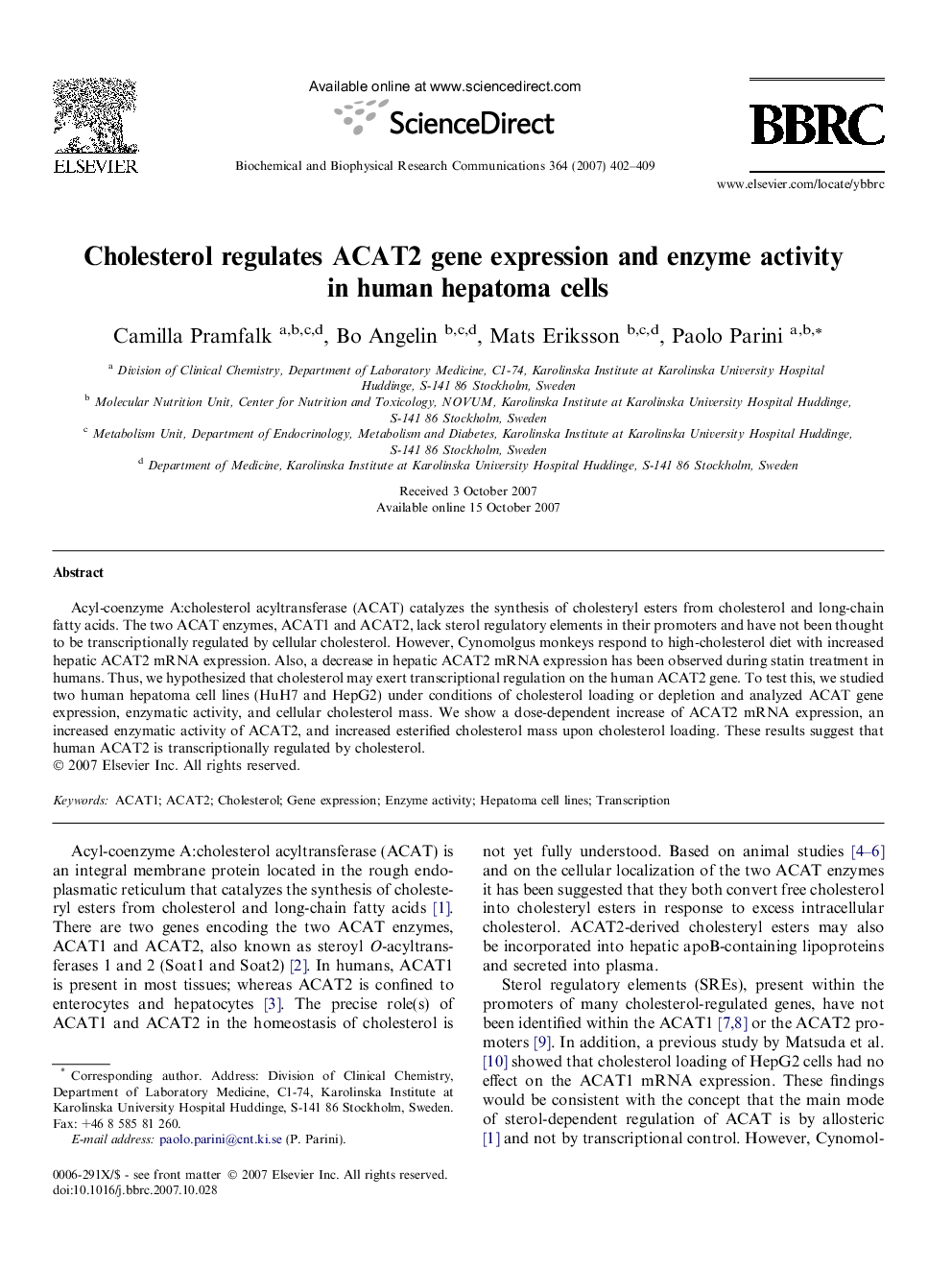| Article ID | Journal | Published Year | Pages | File Type |
|---|---|---|---|---|
| 1936082 | Biochemical and Biophysical Research Communications | 2007 | 8 Pages |
Acyl-coenzyme A:cholesterol acyltransferase (ACAT) catalyzes the synthesis of cholesteryl esters from cholesterol and long-chain fatty acids. The two ACAT enzymes, ACAT1 and ACAT2, lack sterol regulatory elements in their promoters and have not been thought to be transcriptionally regulated by cellular cholesterol. However, Cynomolgus monkeys respond to high-cholesterol diet with increased hepatic ACAT2 mRNA expression. Also, a decrease in hepatic ACAT2 mRNA expression has been observed during statin treatment in humans. Thus, we hypothesized that cholesterol may exert transcriptional regulation on the human ACAT2 gene. To test this, we studied two human hepatoma cell lines (HuH7 and HepG2) under conditions of cholesterol loading or depletion and analyzed ACAT gene expression, enzymatic activity, and cellular cholesterol mass. We show a dose-dependent increase of ACAT2 mRNA expression, an increased enzymatic activity of ACAT2, and increased esterified cholesterol mass upon cholesterol loading. These results suggest that human ACAT2 is transcriptionally regulated by cholesterol.
